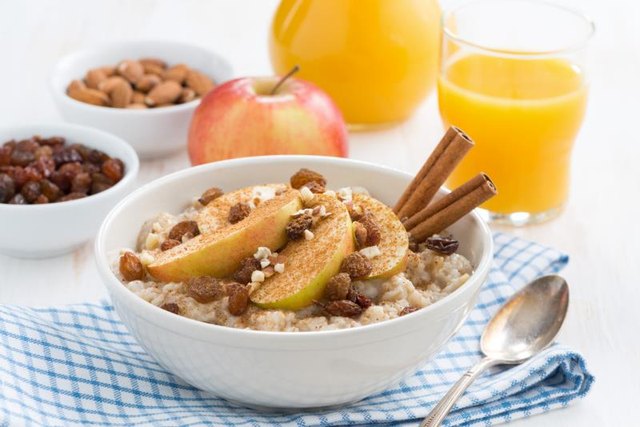
High blood sugar, or hyperglycemia, may be caused by medications, chronic illness or an imbalance in your hormones. Diabetics can develop hyperglycemia if they don't take adequate insulin or if they consume too many carbohydrates, particularly simple carbohydrates that have a high glycemic index. Some research indicates that certain vitamins may help prevent hyperglycemia by lowering your blood sugar level, though more studies are needed. Obtain the majority of the vitamins in your diet from food -- do not attempt to treat blood sugar irregularities with vitamin supplements until you've consulted your doctor.
Effect of Biotin
An article published in 2005 in the Journal of Nutritional Biochemistry concluded that the B vitamin biotin stimulates the production of compounds like insulin that regulate blood sugar and inhibits the synthesis of enzymes responsible for stimulating the liver to produce glucose. The article also reported that people who don't consume enough biotin are more likely to have impaired glucose tolerance and higher blood glucose levels.
The recommended daily allowance of biotin for adults is 30 micrograms. A whole cooked egg supplies 10 micrograms of biotin, a 3-ounce serving of canned pink salmon contains approximately 5 micrograms and pork chops have almost 4 micrograms in every 3 ounces. Other sources include whole grains, legumes, nuts, sardines and some produce like mushrooms.
The recommended daily allowance of biotin for adults is 30 micrograms. A whole cooked egg supplies 10 micrograms of biotin, a 3-ounce serving of canned pink salmon contains approximately 5 micrograms and pork chops have almost 4 micrograms in every 3 ounces. Other sources include whole grains, legumes, nuts, sardines and some produce like mushrooms.
Effect of Vitamin D
The more vitamin D you consume, the less likely you may be to develop high blood glucose and Type 2 diabetes as you age, found a study published in the journal Diabetes in 2008. However, it's not yet known how vitamin D does this, or if increasing vitamin D intake can directly lower the levels of people who already have high blood sugar. Healthy adults should have at least 600 international units each day. Dairy products and juices fortified with vitamin D can help you reach your requirement, as can eggs and some types of fish. A 3-ounce serving of salmon contains 447 IU of vitamin D, while 1 cup of nonfat, reduced-fat or whole milk supplies 115 to 124 IU.
Effect of Thiamine
Thiamine, also known as vitamin B-1, is necessary for the breakdown of fats, carbohydrates and protein for energy and for the health of the immune and nervous systems. According to an article published in the Journal of Clinical Medicine Research in 2012, it's also a crucial component in glucose metabolism. Type 1 diabetics often have low thiamine levels; additionally, a large number of individuals who have high blood sugar are also deficient in thiamine. It's not certain, though, if a diet high in thiamine can prevent blood sugar problems.
Men need about 1.2 milligrams of thiamine daily, and women need 1.1 milligrams. A 1-cup serving of wheat germ breakfast cereal fulfills over 100 percent of an adult's recommendation, with nearly 2 milligrams of thiamine; a 3-ounce serving of pork tenderloin supplies 67 percent of a man's requirement and 73 percent of a woman's.
Men need about 1.2 milligrams of thiamine daily, and women need 1.1 milligrams. A 1-cup serving of wheat germ breakfast cereal fulfills over 100 percent of an adult's recommendation, with nearly 2 milligrams of thiamine; a 3-ounce serving of pork tenderloin supplies 67 percent of a man's requirement and 73 percent of a woman's.
Effect of Vitamin B-6
The average adult needs about 1.3 milligrams of vitamin B-6, or pyridoxine, per day. Required for the synthesis of antibodies and the hemoglobin in red blood cells, vitamin B-6 also plays a role in maintaining steady blood sugar levels. One study, published in the Journal of Nutrition in 2012, demonstrated that a low intake of vitamin B-6 was linked to increased inflammation and a higher risk of a developing a variety of diseases, including diabetes. Additional studies are needed to determine if consuming more vitamin B-6 can directly help regulate blood sugar. To make sure you're getting enough, include foods like bananas, beans, nuts, poultry, avocados and whole grains in your diet regularly.





No comments:
Post a Comment